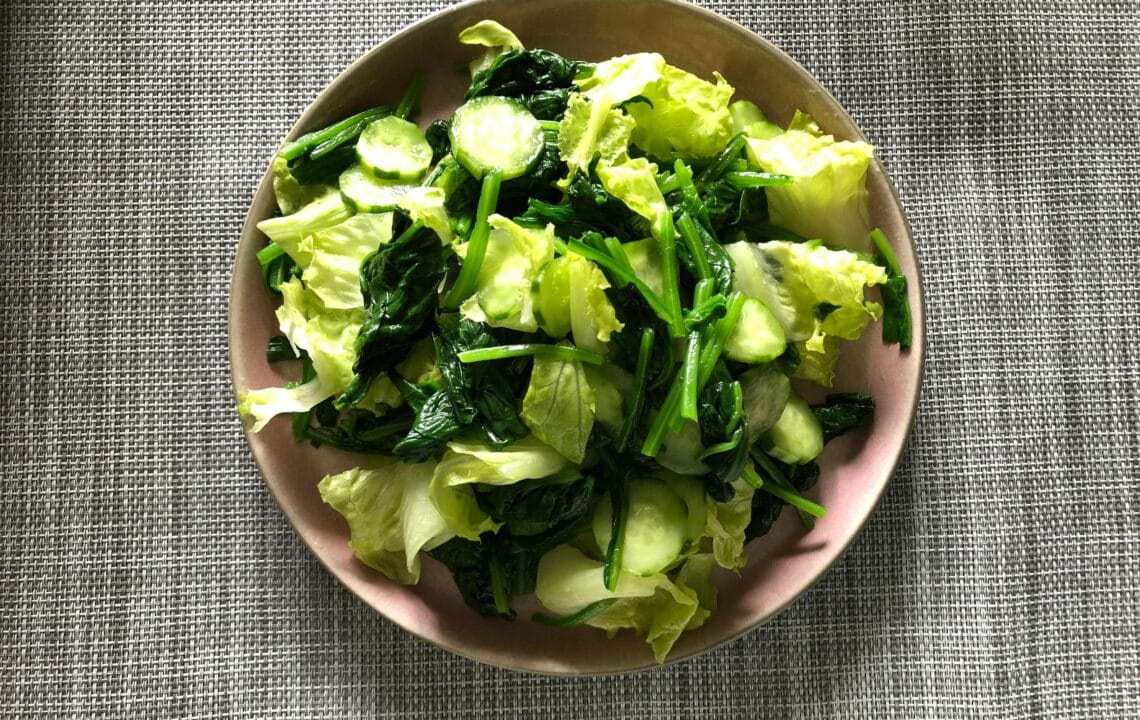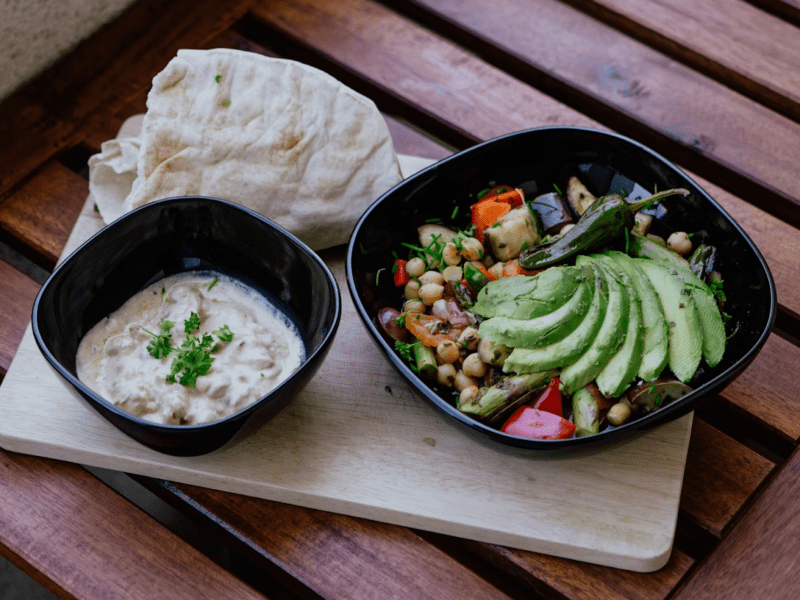Probiotics are live microorganisms that offer numerous health benefits, especially for digestive health. Known as “good bacteria,” they help balance the gut microbiome, improving digestion, nutrient absorption, and immune function. Recent research from 2023 shows that specific probiotic strains, such as Lactobacillus gasseri, can influence weight management by regulating fat metabolism and appetite, with studies suggesting a reduction in abdominal fat by up to 8.5% over 12 weeks.
Adding probiotic-rich foods to your diet not only promotes gut health but may also reduce body fat and inflammation. For example, Greek yogurt provides 10 grams of protein per serving, while sauerkraut and kimchi are low-calorie options packed with fiber and antioxidants. This article highlights the best probiotic sources for weight loss.
1. Yogurt: A Probiotic Powerhouse
Yogurt has a long history as a staple food, dating back thousands of years to ancient cultures in the Middle East and Central Asia. Over time, it became popular for its taste and numerous health benefits, especially as a rich source of probiotics.
Key Benefits of consuming Yogurt:
- Supports gut health with live cultures like Lactobacillus and Bifidobacterium.
- Promotes weight loss by reducing body fat, according to multiple studies.
- Improves digestive function, helping to alleviate bloating and discomfort.
- Rich in essential nutrients, including protein and calcium, supporting overall well-being.
For the best results, choose unsweetened, low-fat, or Greek yogurt to avoid excess calories and sugars while maximizing its health benefits.
2. Kefir: Fermented Milk for Gut Health
Kefir, a fermented milk drink with a history dating back over 2,000 years to the Caucasus Mountains, has been valued for its health benefits and refreshing taste. Traditionally made from cow, goat, or sheep’s milk, it was believed to promote longevity and vitality.
Key Benefits of Kefir:
- Rich in diverse probiotic strains like Lactobacillus acidophilus and Saccharomyces boulardii that support gut health.
- Helps improve digestion by restoring the balance of good bacteria in the gut.
- May reduce belly fat by regulating fat metabolism, according to some research.
- Decreases inflammation, promoting overall health and reducing the risk of chronic diseases.
- Low in calories, making it a weight-loss-friendly option.
With its slightly tangy taste and powerful health benefits, kefir is an excellent addition to any diet.
3. Sauerkraut: Fermented Cabbage
Sauerkraut, a traditional fermented cabbage dish, has been a staple in European diets for centuries, dating back to ancient times when fermentation was used to preserve food. Its unique tangy flavor and health benefits have made it a popular choice for those looking to improve gut health and support weight loss.
Key Benefits of Sauerkraut:
- Contains beneficial probiotics like Leuconostoc, Lactobacillus plantarum, and Pediococcus.
- Supports digestion by promoting a healthy gut microbiome.
- Helps regulate appetite, potentially aiding in weight loss.
- Reduces bloating and improves digestive comfort.
- Unpasteurized sauerkraut retains live probiotics, which are killed during pasteurization.
Including unpasteurized sauerkraut in your diet can be a delicious way to support your overall health and wellness goals.
4. Kimchi: A Korean Fermented Favorite
Kimchi, a staple in Korean cuisine dating back over 2,000 years, is made from fermented vegetables such as cabbage and radishes. It was originally developed as a preservation method for vegetables during the cold winters in Korea. Today, kimchi is renowned for its health benefits, particularly due to its rich probiotic content.
Key Benefits of adding kimchi to your diet:
- Rich in probiotics like Lactobacillus, which promote gut health.
- May reduce body fat, as studies suggest it supports weight loss.
- Improves metabolic health by helping regulate blood sugar and cholesterol levels.
- Low in calories, making it ideal for those looking to shed extra pounds.
- Packed with fiber and antioxidants, promoting overall digestive health.
Adding kimchi to your meals can support a healthy gut and aid weight loss efforts.
5. Miso: Fermented Soybean Paste
Miso, a staple in Japanese cuisine for centuries, is a fermented soybean paste known for its unique umami flavor and numerous health benefits. Traditionally used in soups, miso has been a dietary mainstay in Japan for over a thousand years. It was initially developed as a preservation method for soybeans and quickly became a valued source of nutrition.
Key Benefits of Miso:
- Rich in Probiotics: Miso contains Lactobacillus acidophilus, a beneficial bacterium that promotes a healthy gut.
- Supports Digestion: The fermentation process enhances its probiotic content, helping to improve digestive health.
- Aids Weight Loss: By improving gut health, miso can also play a role in weight management.
- Reduces Inflammation: The probiotics in miso may help lower inflammation in the body, contributing to overall wellness.
- Heart-Healthy: Opt for low-sodium varieties to enjoy the benefits of miso without compromising heart health.
Miso is not just a flavorful addition to your meals but also a powerhouse of health benefits!
6. Tempeh: Fermented Soy for a Protein Boost
Tempeh, a traditional Indonesian food, has been enjoyed for centuries due to its impressive nutritional value and unique flavor. Made from fermented soybeans, it originated in Indonesia over 400 years ago and has since become a popular meat alternative around the world.
Key Benefits of Tempeh:
- Rich in Beneficial Bacteria: Tempeh contains Rhizopus oligosporus, a probiotic that supports gut health.
- High in Protein: Its high protein content helps you feel fuller for longer, which can reduce overall calorie intake.
- Probiotic Support for Metabolism: The probiotics in tempeh may aid in metabolism and help with weight regulation.
This combination of health benefits and history makes tempeh a valuable addition to a healthy diet.
7. Pickles: Fermented Cucumbers
Pickles have been a staple in traditional diets across the world for centuries, particularly in regions known for their fermentation techniques. Originating as a way to preserve food, pickles have now gained popularity for their health benefits, especially when it comes to digestion and weight management.
Key Benefits of consuming Fermented Pickles:
- Rich in Probiotics: Pickles fermented in brine contain live cultures of Lactobacillus, a type of good bacteria that supports gut health.
- Improved Digestion: The probiotics in fermented pickles help break down food more efficiently, promoting smoother digestion.
- Reduces Bloating: By aiding digestion, pickles can also help reduce uncomfortable bloating.
- Supports Weight Loss: The combination of improved digestion and reduced bloating can contribute to better weight management.
Tip: Always choose pickles fermented in salt water rather than vinegar. Vinegar-based pickles lack the probiotic benefits, which are crucial for these digestive advantages.
8. Kombucha: Fermented Tea
Kombucha, a fizzy, fermented tea, has been consumed for centuries, with its origins tracing back to ancient China, where it was known as the “Tea of Immortality.” This drink, now gaining popularity worldwide, is more than just a trendy beverage. It’s rich in probiotics, like Acetobacter and Saccharomyces, which offer various health benefits.
Key Benefits of Kombucha:
- Supports Digestion: Probiotics promote a healthy gut microbiome, easing digestion.
- Aids in Weight Loss: By improving gut health, kombucha may help with weight management.
- Regulates Blood Sugar Levels: This can be beneficial for maintaining energy and overall health.
- Customizable Options: Brew your own kombucha at home to control sugar levels, or opt for low-sugar versions in stores.
Just be cautious of store-bought kombucha’s sugar content, and choose low-sugar varieties or make your own to enjoy its full health potential.
9. Natto: A Japanese Fermented Soy Dish
Natto, a staple in Japanese cuisine for over a thousand years, is made from fermented soybeans. Known for its distinctive flavor and texture, natto is also prized for its health benefits. Here’s why you might want to include it in your diet:
Key Benefits of Natto:
- Rich in Probiotics: Natto contains Bacillus subtilis, a unique probiotic that can improve digestion and boost gut health.
- Supports Weight Loss: The probiotics in natto may aid weight loss by promoting better digestion and a healthy metabolism.
- High in Protein, Low in Calories: This dish is protein-packed but low in calories, making it ideal for those looking to maintain or lose weight.
- Boosts Nutrient Absorption: Natto’s fermentation process enhances the absorption of essential nutrients like vitamins and minerals.
Adding natto to your diet can offer both traditional Japanese flavors and a variety of health benefits.
10. Buttermilk: Traditional Cultured Drink
Buttermilk has been a staple in traditional diets for centuries, especially in countries like India, where it has long been cherished for its cooling and digestive benefits. Historically, it was a byproduct of churning butter, but today, cultured buttermilk is widely available and comes with a range of health advantages.
Benefits of Buttermilk:
- Rich in Probiotics: Traditional buttermilk contains beneficial probiotics like Lactococcus lactis, which support gut health.
- Low in Calories: It is a light, low-calorie drink, making it a great addition to a weight loss diet.
- Improves Digestion: Probiotics in buttermilk help maintain a healthy balance of gut bacteria, promoting better digestion.
- Aids in Weight Loss: The healthy bacteria can enhance metabolism, contributing to weight loss efforts.
When purchasing buttermilk, be sure to look for products labeled as “cultured” to ensure they contain live probiotics.
FAQs
1. Can probiotics help with weight loss?
Yes, research suggests that certain strains of probiotics can help with weight loss by improving gut health, reducing inflammation, and regulating appetite. However, the effects can vary from person to person.
2. Which probiotic strain is best for weight loss?
Strains like Lactobacillus gasseri, Lactobacillus rhamnosus, and Bifidobacterium have shown promising results in supporting weight loss in some studies. However, a combination of strains may be more effective in promoting gut health.
3. How much probiotics should I consume for weight loss?
There is no standard dosage for probiotics when it comes to weight loss, but incorporating probiotic-rich foods into your daily diet can support gut health. If you’re considering supplements, consult with a healthcare provider for personalized recommendations.
4. Are probiotic supplements as effective as probiotic foods?
While probiotic supplements can be beneficial, whole foods often provide additional nutrients and fiber that support digestive health. Combining both food and supplements may be the best approach for some people.
5. Can eating too many probiotic foods cause side effects?
Consuming large amounts of probiotics can sometimes lead to digestive discomfort, such as gas or bloating. It’s best to start with small portions and gradually increase your intake to avoid these side effects.
Read More About Probiotics :
Do Probiotics Break A Fast
Best Probiotics for Weight Loss for Women
Benefits of Probiotics for Women’s Health
Conclusion: Dietary Sources Of Probiotics For Weight Loss
Incorporating probiotic-rich foods like yogurt, kefir, sauerkraut, and kimchi into your diet can support weight loss by promoting a healthy gut microbiome. These foods not only help with digestion but may also regulate appetite, metabolism, and reduce inflammation, making them a valuable addition to any weight loss plan. Additionally, they provide essential nutrients like vitamins, minerals, and antioxidants, which further enhance your overall well-being.
By consuming a variety of these probiotic sources, you can improve your overall health, boost your immune system, and enhance digestive function while working toward your weight loss goals. Including these foods regularly can help you maintain a balanced diet and sustainable weight loss.





